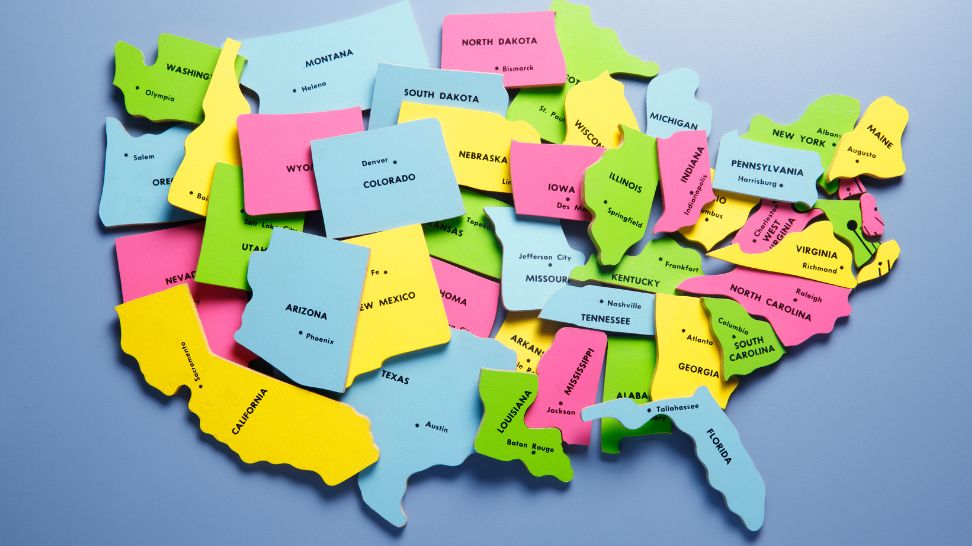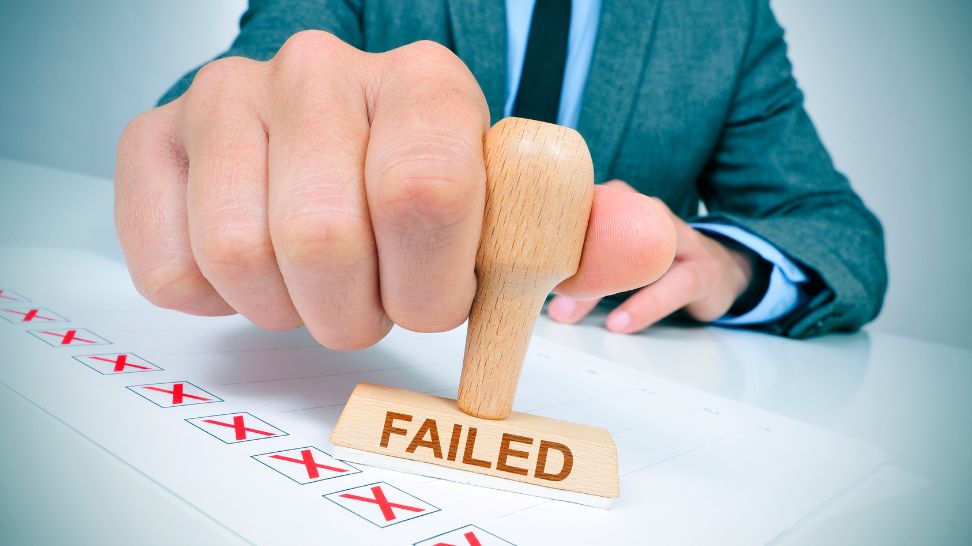
Have you found yourself struggling financially? Perhaps you’ve taken on more debt than you can handle and now have to file for bankruptcy. Or, maybe you recently lost your job and worry you’ll fall behind on your payments. Any sort of financial difficulty can be stressful, but it becomes even more worrying when your home might be at risk.
Homestead exemptions can help you reduce property taxes and protect your house from creditors. Homestead exemptions by state may differ; some of the more beneficial options include:
At Blake Harris Law, we understand that homestead exemptions may seem confusing. What exactly are they? How do they work, and what does your state offer? We want to answer these questions. That’s why we’ve created a list exploring homestead exemptions by state. Discover the benefits of these laws, learn more about how to apply for the exception, and compare options for different states.

Each state has its own laws surrounding exemptions. Some may only allow you to protect properties up to a specific size; others may limit exemptions based on certain factors. Because of this, it’s important to explore homestead exemptions by state to learn more about what’s available.
| State | Exemption Type | Terms |
| Alabama | Limited | Exemption limit (individual): $15,000 |
Exemption limit (married couple/joint owner): $30,000
Homeowners may also claim a statutory exemption (up to $54,000).
*As of January 1, 2024, this number now increases annually based on the consumer price index and can reach up to $400,000.
The exemption amount is indexed annually and automatically updated for each county.
Exemption limit if the homeowner, homeowner’s spouse, or homeowner’s dependent is elderly or disabled: $105,000 to $350,000.
Exemption limit (married couple/joint owner): $150,000
The exemption limit may rise to $125,000 if the homeowner faces a monetary judgment due to hospital services.
Exemption limit (married couple/joint owner): $43,000
Exemption limit for the head of household or owners over 65: $30,000
Exemption limit (married couple/joint owner): $30,000
Exemption limit (married couple/joint owner): $38,600
Exemption limit if the homeowner has minor dependents, if the homeowner is over 60, or if the owner is disabled: $95,000
Exemption limit if the owner is over 65 years old or disabled: $45,000
Exemption limit for certain judgments related to creditors: $3,500
Exemption limit for mobile homes, provided you don’t own the land the mobile home is on is $30,000
Exemption limit for mobile homes, provided you don’t own the land the mobile home is on: $5,000
Exemption limit (married couple/joint owner): $120,000
Exemption limit (married couple/joint owner): $165,550 to $331,100
Exemption limit (married couple/joint owner): $70,000
Exemption limit if the owner is over 65, the previous co-owner is deceased, or the owner is unmarried: $60,000
Statutory exemption limit: $125,000
Exemption limit (joint owner): $50,000
Exemption limit (married couple/joint owner): $116,510
Statutory exemption limit: $50,000
Exemption limit (married couple/joint owner): $7,500
Exemption limit (married couple/joint owner): $40,000
Exemption limit (married couple/joint owner): $250,000
Exemption limit (married couple/joint owner): $10,000
Exemption limit if you’re above 65: $10,000
Exemption limit (married couple/joint owner): $50,000
Creditor claims: $5,000
If the creditor claims the debt arose because of a catastrophic illness or injury: $7,500
Exemption limit (married couple/joint owner): $150,000
Exemption limit (married couple/joint owner): $40,000
Your homestead is your primary residence, whether it’s a single-family dwelling, mobile home, condominium, or other property. It is likely your biggest investment and provides necessary shelter against the elements. If you find yourself struggling financially, however, your property may be in jeopardy. For example, say you have large amounts of credit card debt. If you can’t make payments, creditors may force you to sell your property to cover the difference.
A homestead exemption is a legal way to protect your property. These laws can help you defend your property from creditors, and reduce the repercussions of bankruptcy, among other benefits. How much the exemption is — and whether you can claim an exemption at all — will vary depending on the state.
Homestead exemptions apply only to your primary residence. Generally, this means a single-family home and (depending on the state) the land it rests on. However, some states extend the exemption to mobile homes, condominiums, co-ops, and even boats, provided you live there full-time. You’ll want to examine your state’s homestead exemptions to determine whether your property qualifies.

Homestead exemptions are excellent tools for anyone struggling financially. By applying for an exemption, you can help protect some or all of the equity in your home.
Debt can be crippling. If you have a high income-to-debt ratio, you may find yourself struggling to make payments. Creditors may grow impatient and pursue alternative ways to reclaim their money, which puts your property at risk.
Homestead exemptions can shield some or all of your equity in your primary residence. Each state has its limits; if your equity in your house is at or below that limit, it would not be productive for a creditor to force you to sell your property to repay your debts. If the property’s equity is above those limits, you may still lose the property itself; however, exemptions may allow you to keep some of the proceeds.
Bankruptcy offers relief for people struggling with overwhelming debt. However, it also often leads to the loss of property. While federal bankruptcy law can help protect you, it only protects up to $27,900 of equity in your principal residence.
Your state’s homestead exemption laws can provide you with additional protection. Many states offer higher exemption limits, which means might be more likely to keep your property.
Debt can be difficult to deal with at any point, but that becomes especially true if the debtor passes away. Your spouse or children might find themselves suddenly facing the prospect of losing their home with no recourse. Homestead exemptions aim to protect creditors so that your loved ones remain safe.
Property taxes can be difficult to pay if you find yourself facing financial hardships. A homestead exemption can reduce your burden by lowering your property’s taxable value.
Say, for example, that you have a property assessed at $200,000. Your state determines if you’re eligible for a $75,000 exemption. This would lower your property’s taxable value to $125,000, which would, in turn, lower your property taxes.
Homestead exemptions vary by state but will fall into one of the following two categories.
As the name implies, an unlimited exemption protects the entire homestead, regardless of its value. That said, many states impose some limits; for example, in Arkansas, your property can’t exceed one acre in an urban area or 160 acres in a rural one.
Capped exemptions will only protect your homestead up to a certain amount, with the exact value varying depending on the state. California, for example, has such a high exemption limit that it can almost function like an unlimited exemption; Kentucky, on the other hand, will only protect up to $5,000. Some states will increase the limit under certain circumstances — for example, married couples may have their limit doubled.

Almost every state provides homeowners with some protection, even if it’s not a particularly large amount. However, two states don’t offer any exemptions: Pennsylvania and New Jersey. While you might be able to take advantage of federal homestead exemption laws, the states themselves offer no coverage. Because of this, you’ll likely want to take extra steps to protect your property — for example, pursuing asset protection planning.
Before applying, take the time to determine whether you’re eligible. The exact eligibility requirements vary by state; that said, many include the following stipulations:
Exemption limits may change based on your marital status, disability status, and age, among other variables. Be sure to check your state’s guidelines before applying.
Once you’ve determined your eligibility, visit your county tax assessor’s website. The application process differs by state, but many will require you to fill out a form and provide proof of eligibility. Once that information is submitted, someone will review your application to determine whether the state should approve it.
Some states may also automatically apply for homestead exemptions, either as a flat-dollar exemption where they deduct a specific number from what you owe, or a percentage exemption where they deduct a percentage from what you owe.
You want to do whatever you can to protect your property. Understanding homestead exemptions by state is a good first step; take the process further by exploring asset protectrcalcion planning from Blake Harris Law. We can assess your situation, discuss your options, and create a plan for your peace of mind. Reach out today to request a consultation and learn more about what we do.
Attorney Blake Harris is the founding principal at Blake Harris Law where he assists clients with domestic and international Asset Protection Planning. Blake's extensive experience helping families protect their property has made him well regarded as an authority in handling the difficult and sensitive issues surrounding asset protection planning. Blake has a degree in Finance from the University of Florida and a Juris Doctorate from the University of Florida College of Law, a top tier law school.